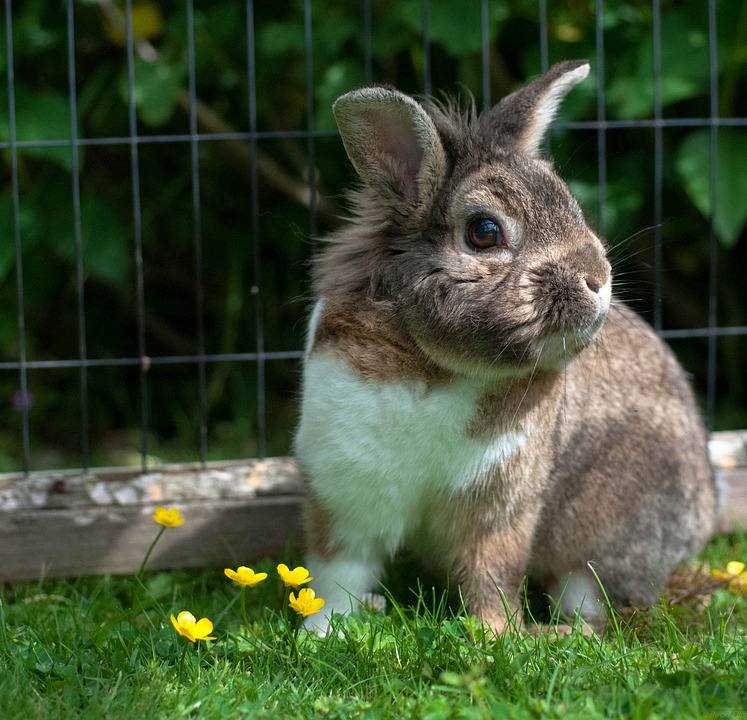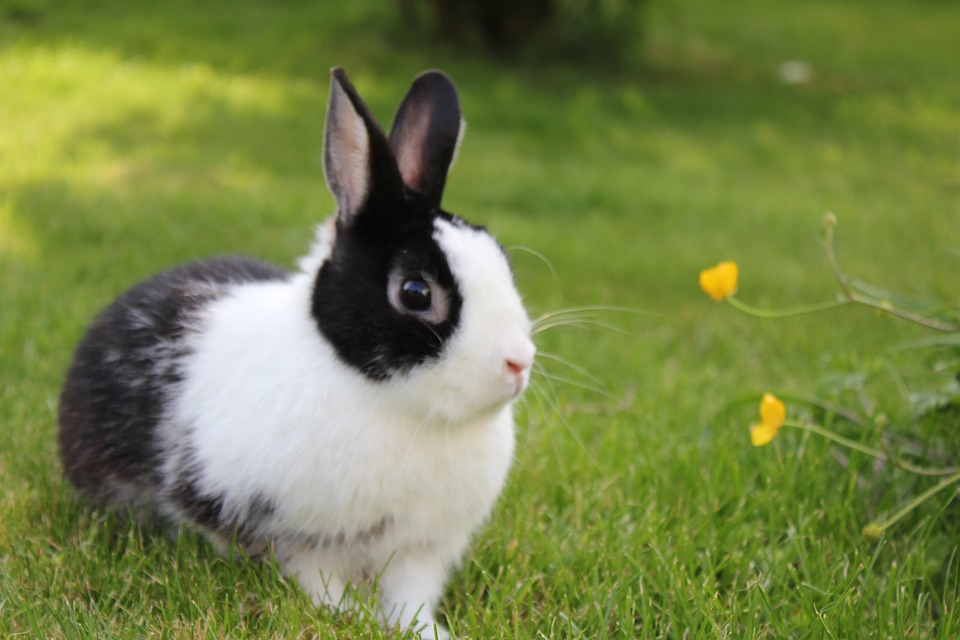This comprehensive guide will explore the complex relationship between rabbits and potatoes, offering a definitive answer to the question of whether these furry friends can safely enjoy this common staple. We will delve into the nutritional value of potatoes, meticulously examine the potential risks associated with feeding them to rabbits, and provide clear, practical guidelines for responsible rabbit ownership. This guide is designed to empower both seasoned rabbit owners and newcomers to make informed decisions about their rabbit’s diet, ensuring their health and happiness.
Part 1: Understanding Rabbit Nutrition

1.1 The Importance of a High-Fibre Diet
Rabbits are herbivores with digestive systems specifically adapted to process high-fibre diets. Their digestive tracts rely on the constant flow of fibre to maintain a healthy balance of gut bacteria, promote efficient digestion, and prevent digestive issues.
1.2 The Role of Hay
Hay, particularly Timothy hay, is the cornerstone of a healthy rabbit diet. It provides essential fibre, helps wear down their teeth, and offers a wide range of vitamins and minerals.
1.3 The Value of Fresh Vegetables
Fresh vegetables should supplement a rabbit’s diet, offering essential vitamins and minerals, promoting hydration, and providing variety and enrichment. Choose leafy greens, bell peppers, and other rabbit-safe vegetables.
1.4 The Risks of Grains and Sugars
Rabbits are sensitive to high-sugar and high-grain diets. Excessive amounts of these can lead to digestive problems, obesity, and other health issues.
Part 2: Potatoes: Nutritional Value and Potential Risks

2.1 Carbohydrates: Energy Source and Potential Drawback
Potatoes are primarily composed of carbohydrates, providing rabbits with essential energy for daily activities. However, their high carbohydrate content can disrupt the delicate balance of a rabbit's digestive system, potentially leading to digestive upset, especially when consumed in excess.
2.2 Vitamins and Minerals: A Limited Contribution
Potatoes do offer a small amount of essential vitamins and minerals like vitamin C and potassium, but these are readily available in other rabbit-friendly vegetables and hay, making potatoes a less-than-ideal source.
Part 3: The Risks of Feeding Potatoes to Rabbits
3.1 Digestive Upset: A Common Concern
The high starch content of potatoes can be difficult for rabbits to digest, leading to bloating, gas, and diarrhoea, potentially causing discomfort and impacting their overall health.
3.2 Bloat: A Serious and Potentially Life-Threatening Condition
Excessive consumption of starchy foods like potatoes can lead to bloat, a dangerous condition where gas builds up in the digestive tract, causing pressure on internal organs and potentially leading to organ damage or even death.
3.3 Toxicity of Green Potatoes: Solanine's Dangers
Green potatoes contain solanine, a toxic alkaloid. This toxin can cause vomiting, diarrhoea, lethargy, and even death in rabbits. Always discard any potatoes exhibiting green patches or sprouting, as they are unsafe for consumption.
Part 4: Potatoes as an Occasional Treat
4.1 The Importance of Moderation
Potatoes should never be a staple food for rabbits. They should be offered only as an occasional treat, in small portions, and in a cooked form.
4.2 The Importance of Cooking
Raw potatoes are difficult for rabbits to digest and pose a higher risk of digestive upset. Cooking helps break down starch and reduces the risk of complications.
4.3 Portion Control: A Crucial Guideline
A small piece of cooked potato, no larger than a rabbit’s nail, can be offered once or twice a week as a treat. Never exceed this amount and carefully observe your rabbit’s reaction after each treat.
Part 5: Alternatives to Potatoes
5.1 Hay: The Foundation of a Healthy Diet
Hay should form the bulk of a rabbit’s diet. It provides essential fibre, promotes healthy digestion, helps wear down their teeth, and offers a wide range of nutrients. Choose Timothy hay for its rich nutritional profile and low calorie content.
5.2 Fresh Vegetables: A Vital Source of Nutrients
A variety of fresh vegetables should supplement your rabbit’s diet. Choose leafy greens, bell peppers, and other rabbit-safe vegetables to ensure a balanced intake of vitamins, minerals, and antioxidants.
5.3 Pellet Food: A Complementary Component
Pellet food can provide additional nutrition, but it should be offered in moderation. Choose a high-quality pellet formulated specifically for rabbits and avoid those with high amounts of grains.
Part 6: Identifying Signs of Digestive Issues
6.1 Changes in Appetite: A Potential Warning Sign
A decrease in appetite or a reluctance to eat can indicate digestive problems, so it’s important to monitor your rabbit’s eating habits closely.
6.2 Abnormal Stools: A Clear Indicator of Digestive Upset
Changes in stool consistency, such as diarrhoea or constipation, are telltale signs of digestive issues.
6.3 Lethargy: A Sign of Pain or Discomfort
Lethargy or a lack of energy can indicate that your rabbit is experiencing pain or discomfort, potentially related to digestive problems.
Part 7: Seeking Veterinary Care
7.1 Prompt Action: Essential for Successful Treatment
If you notice any signs of digestive issues in your rabbit, seek immediate veterinary care. Early intervention is crucial for successful treatment.
7.2 Diagnosis and Treatment: Finding the Right Solution
A veterinarian can diagnose the cause of your rabbit’s digestive problems and provide appropriate treatment, which may involve medication, dietary adjustments, or other interventions.
Part 8: FAQs: Addressing Common Concerns
8.1 Can I give my rabbit potato peels?
No, potato peels are not recommended for rabbits. They can contain high levels of solanine, a toxic alkaloid.
8.2 Can I give my rabbit sweet potatoes?
Sweet potatoes are a good source of vitamins and minerals, but they are also high in sugar and should be given in moderation.
8.3 Can I give my rabbit baked potatoes?
Baked potatoes can be a safe treat for rabbits, but they should be cooked without any added butter, oil, or salt.
8.4 Can I give my rabbit potato chips?
No, potato chips are highly processed and contain unhealthy ingredients that are harmful to rabbits.
8.5 Can I give my rabbit potato salad?
No, potato salad contains ingredients like mayonnaise and onions, which are toxic to rabbits.
8.6 My rabbit ate a whole potato, what should I do?
If your rabbit has eaten a whole potato, monitor them closely for signs of digestive upset. Contact your veterinarian if you are concerned.
This comprehensive guide provides valuable information for rabbit owners regarding the safe and responsible feeding of potatoes. Always prioritise your rabbit’s health and well-being by adhering to the guidelines outlined in this article.
Everyone is watching
-

Do Rabbits Lay Eggs? (The Surprising Truth)
OTHER TYPES OF PETSThis article will unravel the common misconception that rabbits lay eggs, exploring the fascinating world of r...
-

What's a Group of Rabbits Called? (A Comprehensive Guide)
OTHER TYPES OF PETSThis article delves into the fascinating world of rabbits, exploring the various terms used to describe a grou...
-

Can Rabbits Eat Grapes? A Guide to Safe Rabbit Treats
OTHER TYPES OF PETSThis comprehensive guide will explore the safety and suitability of grapes for rabbits, providing detailed inf...
-

Predators That Hunt Rabbits: A Guide to Natural Enemies
OTHER TYPES OF PETSI've always been fascinated by the circle of life, that delicate dance between predator and prey. Growing up ...
-

Are Rabbits Nocturnal Animals?
OTHER TYPES OF PETSThe question of whether rabbits are nocturnal animals is a fascinating one, with a surprisingly complex answer...
